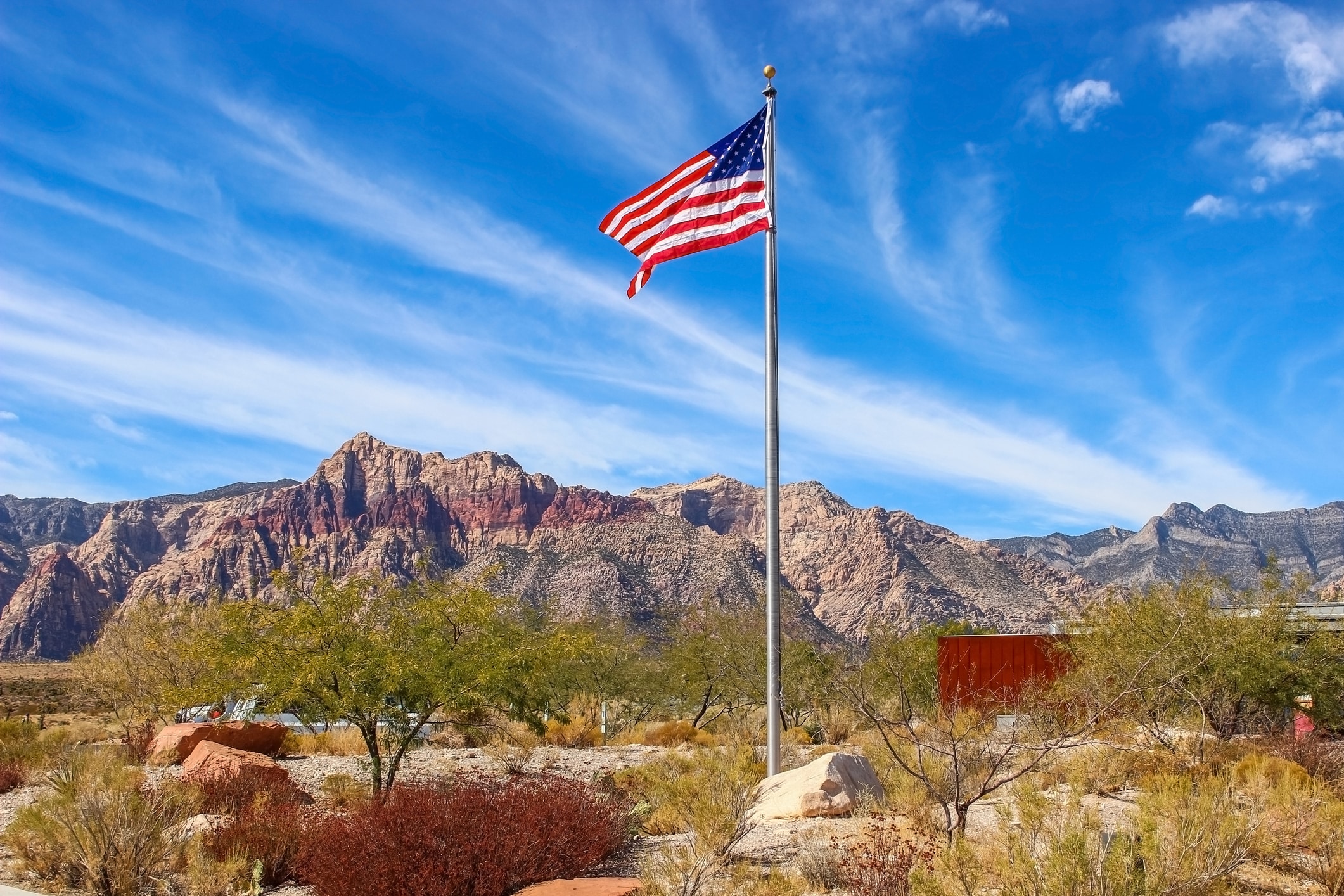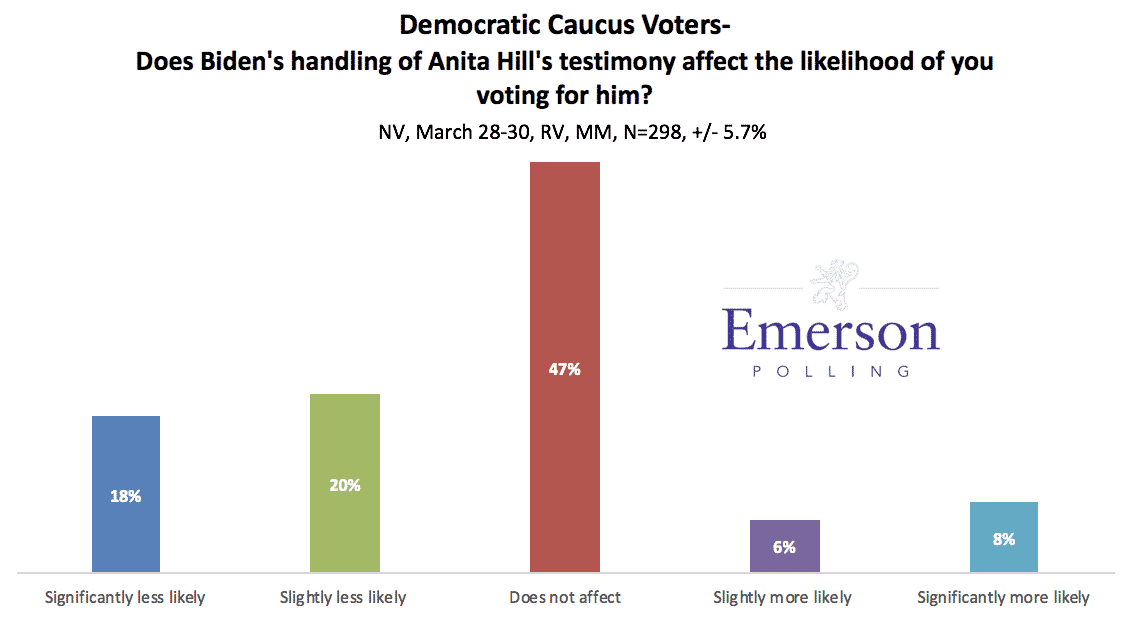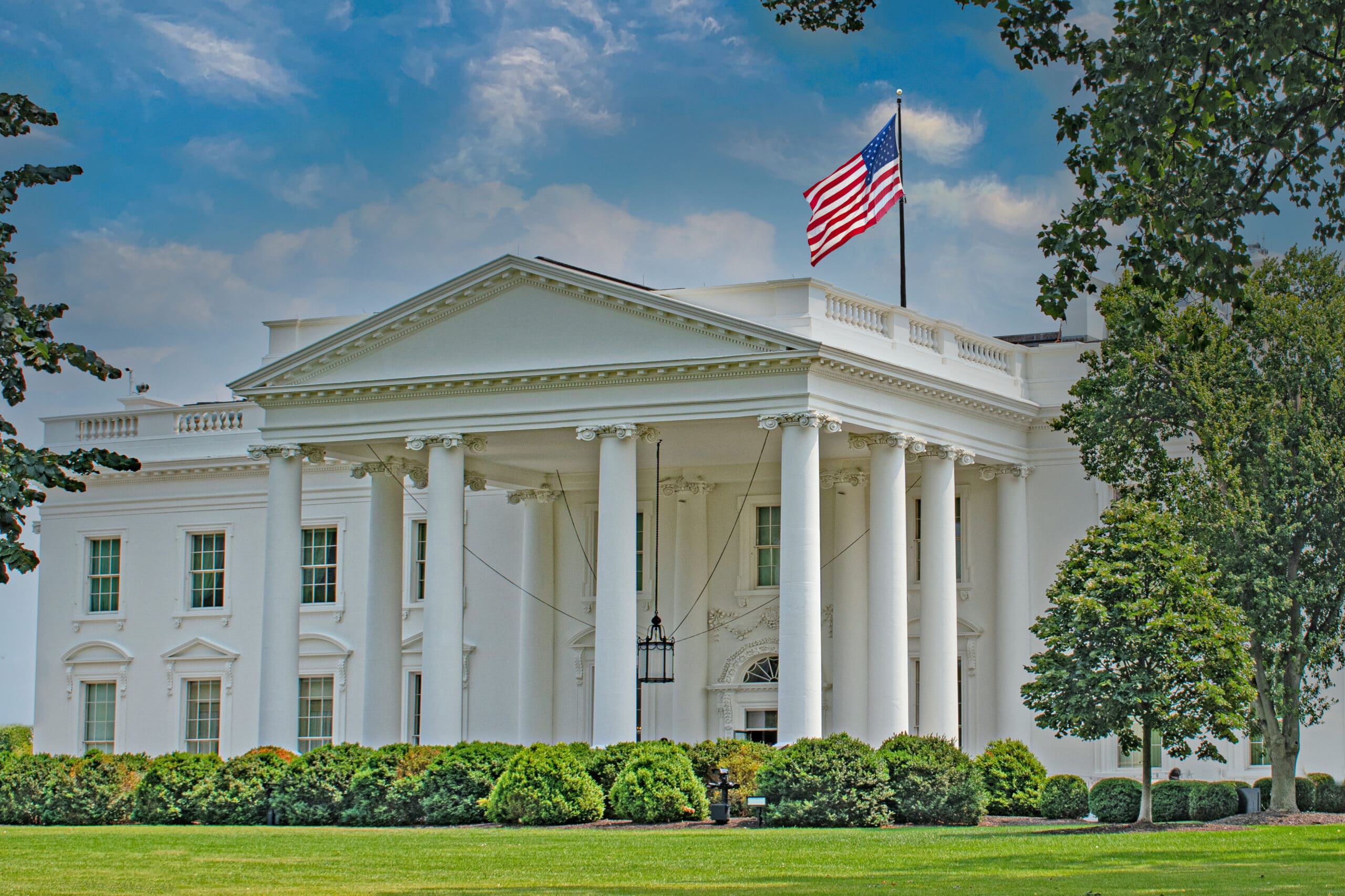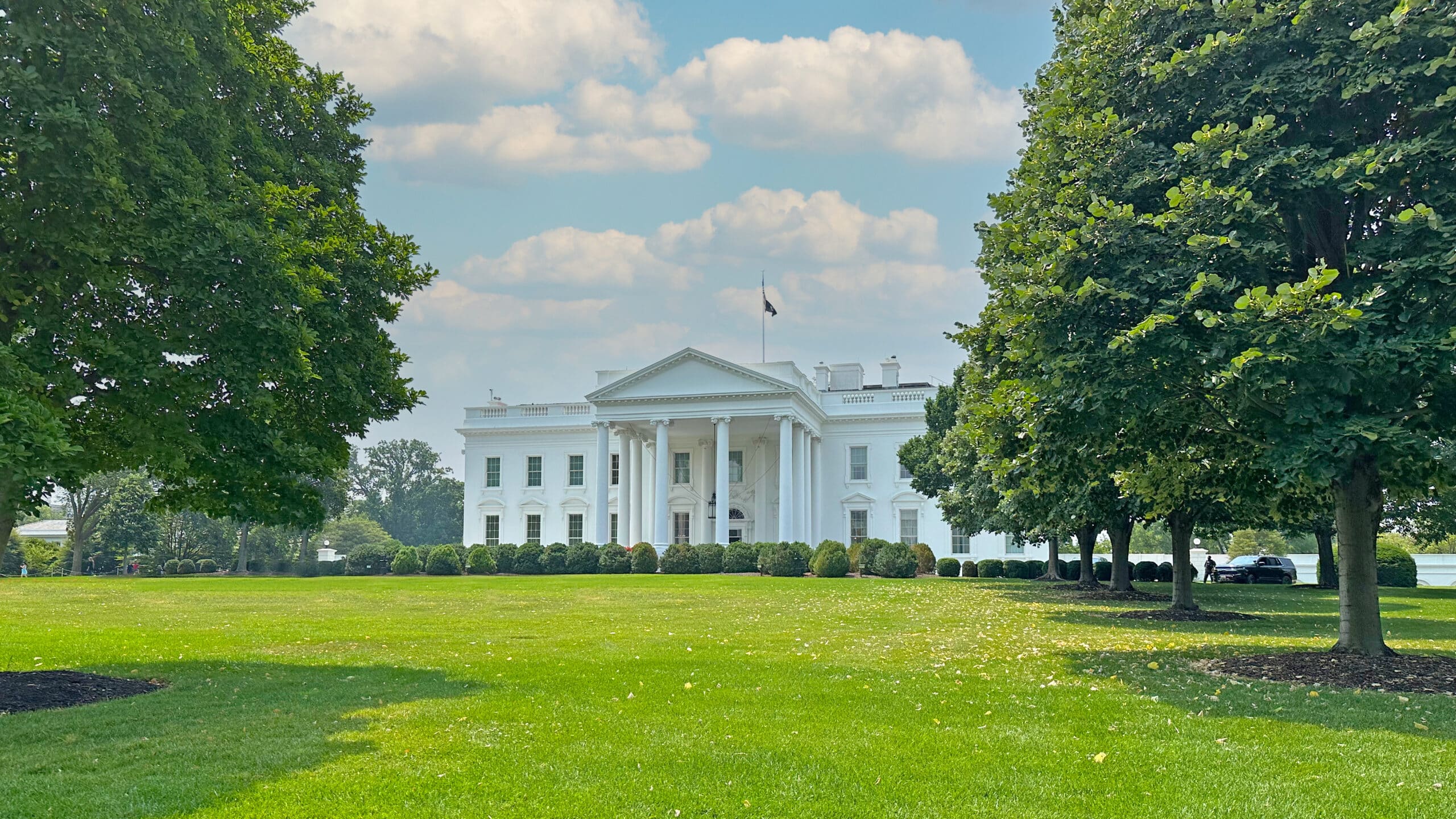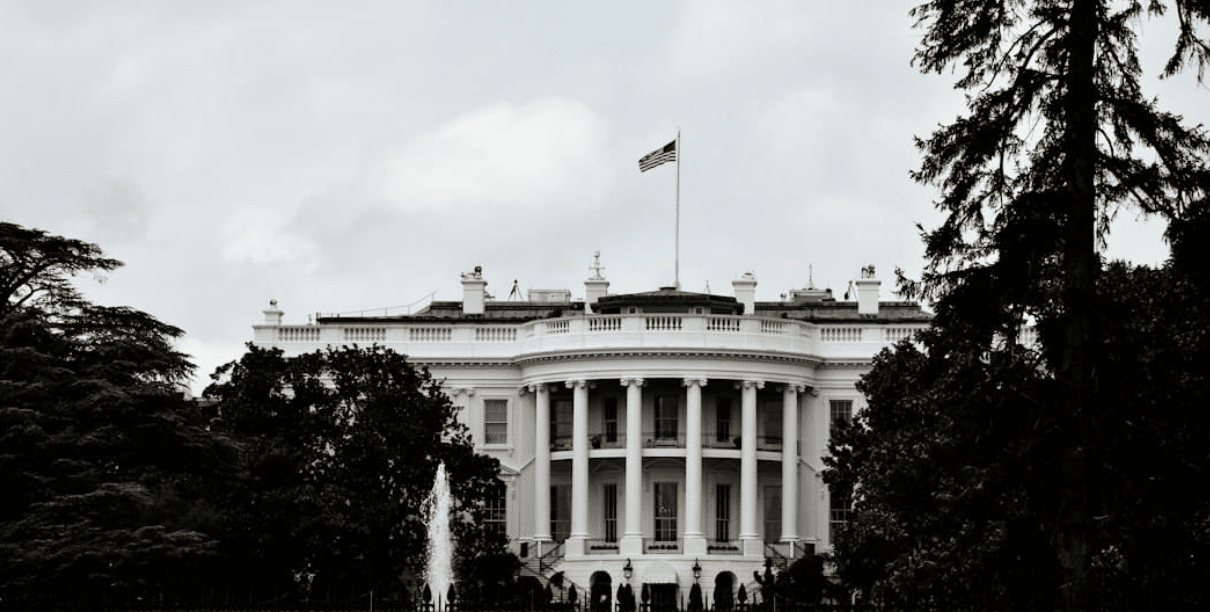A new Emerson College poll in Nevada finds Joe Biden leading the Democratic field at 26%, followed closely by Bernie Sanders at 23%. Next, Beto O’Rourke and Elizabeth Warren have 10% respectively in the state, followed by Kamala Harris at 9%, and Pete Buttigieg at 5%. (n=310, +/- 5.5%)
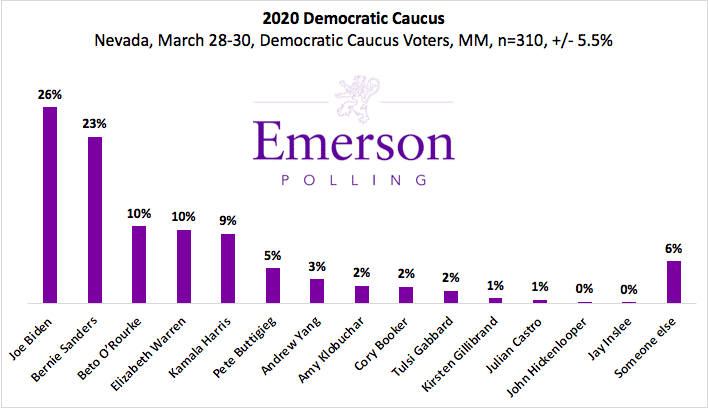
These findings are similar to those found in New Hampshire and Iowa, where Sanders and Biden were found to be competitive at the top of the race. Of the early primary states, only South Carolina was significantly different, as Biden appears to have a bit of a firewall in the state.
Sanders continues to do the strongest with 18-29 year olds, receiving 31% of support among that group. Following Sanders among 18-29 year olds is O’Rourke with 18%, and Yang with 14%. Sanders also leads with 30-49 year olds with 26%, followed by Biden with 22%. Biden leads with 50-64 year olds with 32% and among those 65 years or older with 40%.
Among Democratic Hispanic voters, Biden leads with 20%, followed by Sanders with 18%, O’Rourke with 17%, and Warren with 15%. Biden also leads among white Democrats with 29%, followed by Sanders with 20%, and Harris with 12%. Among black Democrats Biden leads with 34%, followed by Warren with 20%, Harris with 13% and O’Rourke with 12%.
In a potential primary match up with Gov. Bill Weld, Trump leads 92% to 8% (n=263 +/-6.1%).
General Election Head to Heads/Trump Approval
President Trump is popular in Nevada, with a chance to flip a state he lost in 2016 by 2 points. The poll showed the President with a 49% approval and 44% disapproval rating in the state. In the general election, Trump trailed only Joe Biden in head to head matchups against leading Democratic candidates (n=719 +/- 3.6%).
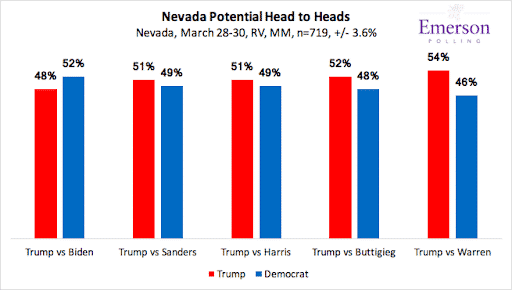
“This poll shows a pattern in recent polls where Biden outperforms other Democratic candidates among Independent voters against Trump,” says Spencer Kimball, Director of the Emerson Poll. “Furthermore, in Nevada, Trump leads Biden with Independents 51%-49%, but against Sanders, Trump expands his lead to 58% to 42%.” Kimball went on to note, “it will be a challenge this year for a Democratic candidate to thread the needle to please both Democratic primary voters who want the party to move left on policy, while winning over moderate independent voters to succeed in the general election.”
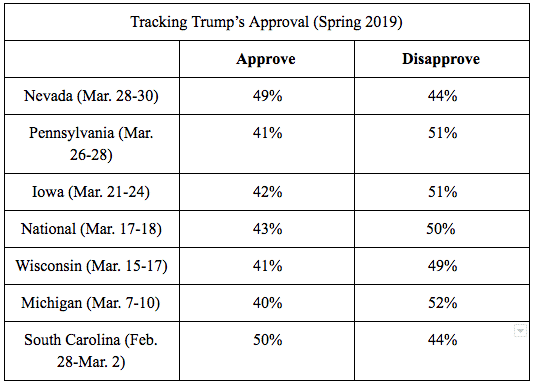
Anita Hill
In 1992, Joe Biden was the Senate Judiciary Committee chairman during Clarence Thomas’ nomination to the Supreme Court. Biden played a prominent role in Anita Hill’s testimony, when she accused Justice Thomas of sexual harassment. Recently, some have criticized Biden’s actions during the testimony. Biden has since said he regretted his role in the hearings.
Additionally, on March 29th, a former Nevada assemblywoman wrote an op-ed claiming that Biden had inappropriately touched and kissed her at a campaign event. Biden’s controversial history with women may prove to be an obstacle in his potential 2020 presidential bid.
When asked about the Anita Hill hearings, 38% of potential Democratic caucus goers indicated that it would make them either somewhat or significantly less likely to vote for him in the caucus. 47% of Democrats said it would have no effect on their vote.
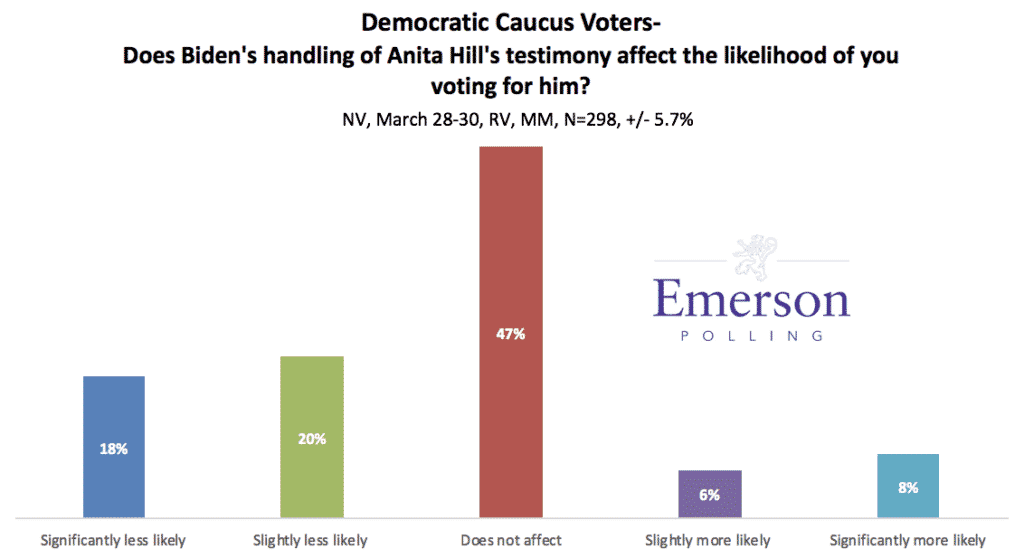
Ideal Candidate
- 47% of voters somewhat or strongly agree that the president should have prior experience in an elected position. 30% of voters were opposed to the president having prior experience in office. 24% were neutral.
- A majority of voters (64%) agreed that presidential candidates should be obligated to disclose their financial backgrounds. This desire was more prevalent among Democrats, 81% of whom supported financial transparency, than it was amongst Republicans, of whom 46% supported transparency.
- A plurality of voters (40%) had no opinion on whether their ideal president would be outspoken out their religious beliefs. 28% felt that their ideal candidate would be outspoken about their beliefs and 33% felt that their ideal candidate would not.
- 81 percent of voters said that their ideal president would make an attempt to reach across the aisle and work with the other party. Bipartisan sentiment was slightly higher among Democrats (87%) than Republicans (75%) but was the majority opinion among respondents. 13% of respondents had no opinion on this issue and only 7% disagreed that their president would be bipartisan.
- A plurality of respondents (47%) did not have an opinion on whether their ideal candidate would be a woman or have a woman as a running mate. 33% strongly or somewhat agreed that a woman should be elected president or vice president. 21% strongly or somewhat disagreed that a woman should be president or vice president.
Caller ID
The Nevada statewide Emerson College poll was conducted March 28-30, 2019. The sample consisted of registered voters, n=719, with a Credibility Interval (CI) similar to a poll’s margin of error (MOE) of +/- 3.6 percentage points. The data was weighted based on mode, 2016 election results, 2016 caucus results, age, party, and region. It is important to remember that subsets based on gender, age, party breakdown, ethnicity and region carry with them higher margins of error, as the sample size is reduced. Data was collected using both an Interactive Voice Response (IVR) system of landlines only (n=513) and an online panel provided by Amazon Turk (n=116) and Dynata (n=100).
Follow us on Twitter @EmersonPolling



